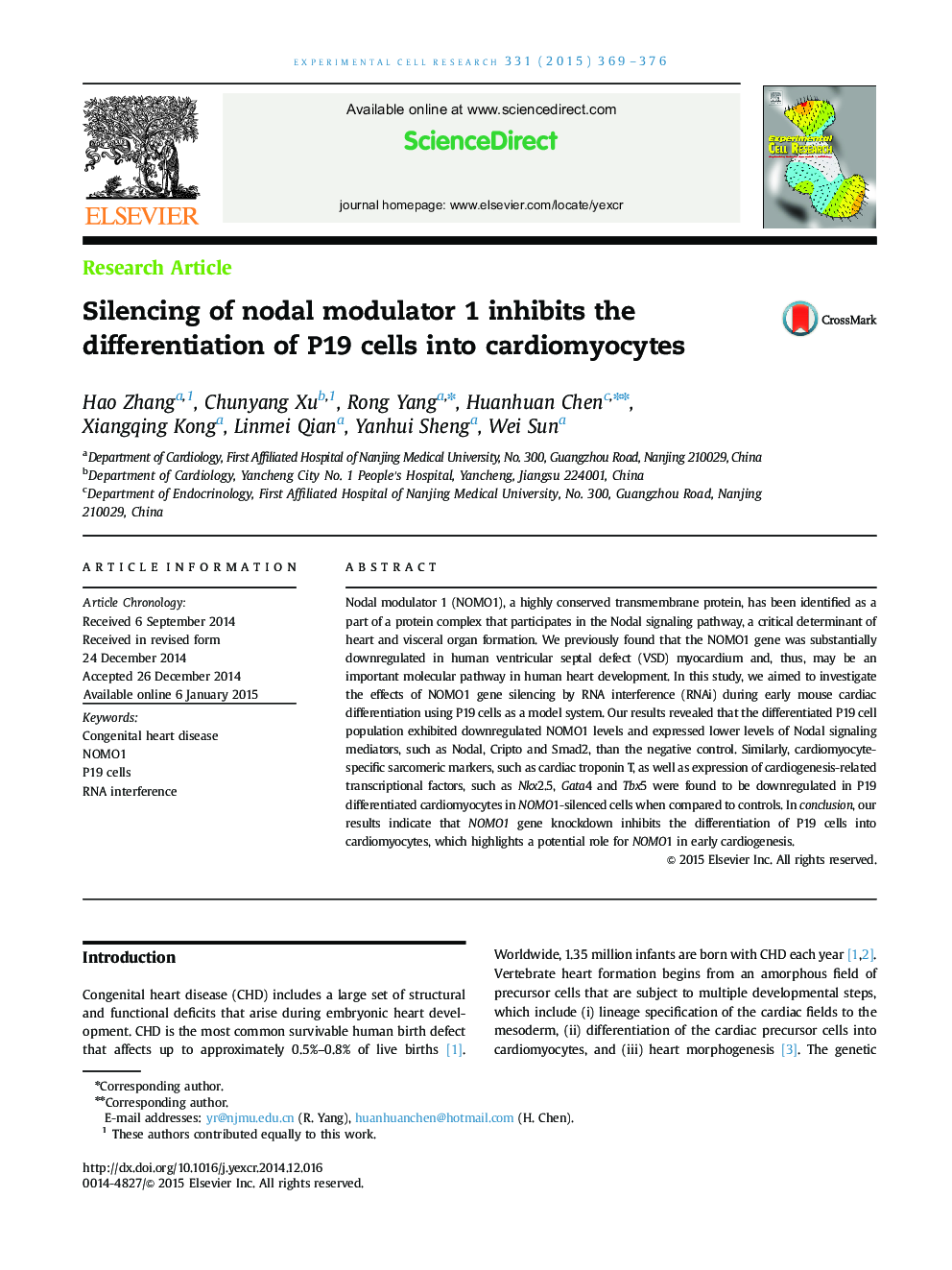| Article ID | Journal | Published Year | Pages | File Type |
|---|---|---|---|---|
| 10903821 | Experimental Cell Research | 2015 | 8 Pages |
Abstract
Nodal modulator 1 (NOMO1), a highly conserved transmembrane protein, has been identified as a part of a protein complex that participates in the Nodal signaling pathway, a critical determinant of heart and visceral organ formation. We previously found that the NOMO1 gene was substantially downregulated in human ventricular septal defect (VSD) myocardium and, thus, may be an important molecular pathway in human heart development. In this study, we aimed to investigate the effects of NOMO1 gene silencing by RNA interference (RNAi) during early mouse cardiac differentiation using P19 cells as a model system. Our results revealed that the differentiated P19 cell population exhibited downregulated NOMO1 levels and expressed lower levels of Nodal signaling mediators, such as Nodal, Cripto and Smad2, than the negative control. Similarly, cardiomyocyte-specific sarcomeric markers, such as cardiac troponin T, as well as expression of cardiogenesis-related transcriptional factors, such as Nkx2.5, Gata4 and Tbx5 were found to be downregulated in P19 differentiated cardiomyocytes in NOMO1-silenced cells when compared to controls. In conclusion, our results indicate that NOMO1 gene knockdown inhibits the differentiation of P19 cells into cardiomyocytes, which highlights a potential role for NOMO1 in early cardiogenesis.
Related Topics
Life Sciences
Biochemistry, Genetics and Molecular Biology
Cancer Research
Authors
Hao Zhang, Chunyang Xu, Rong Yang, Huanhuan Chen, Xiangqing Kong, Linmei Qian, Yanhui Sheng, Wei Sun,
